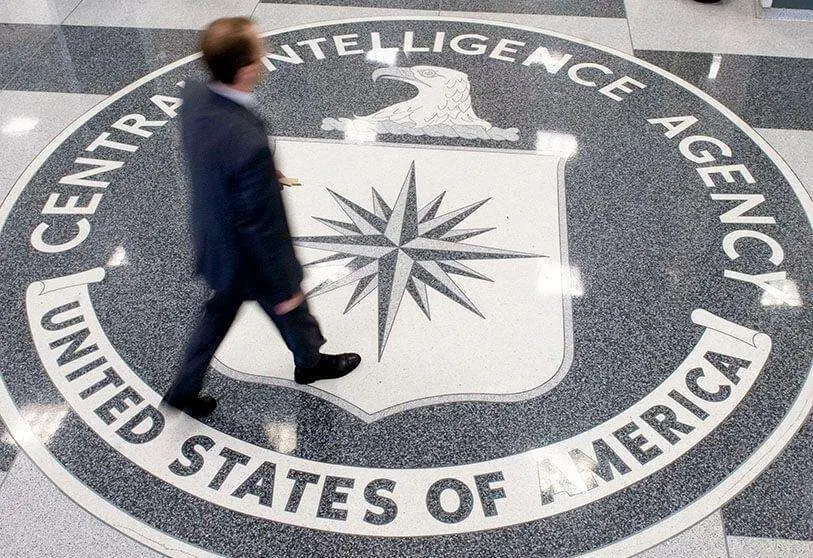Israel reportedly informed the US of its responsibility for the assassination of a Revolutionary Guard colonel

An intelligence official reportedly confirmed to The New York Times that Israel was behind the assassination of Colonel Hasan Sayyad Khodai, a member of the Iranian Revolutionary Guard. Khodai was reportedly killed after two hooded men shot him from a motorbike near his home in Tehran in broad daylight.
The source, who asked not to be named, said Israeli officials saw the operation as "a warning to Iran to stop the operations of a secret group within the Quds Force known as Unit 840". This organisation, which Israel has tried to keep secret, is becoming increasingly known internationally for its violent actions against non-Iranian positions and targets.

According to various intelligence reports, this division is reportedly supported by a number of criminal groups that use its infrastructure to assassinate, kidnap or pursue targets around the world. According to Israeli officials, Colonel Khodai "was the deputy commander of Unit 840 and was involved in planning cross-border plots against foreigners, including Israelis".
They further indicated that Colonel Khudaei was "responsible for the unit's operations in the Middle East and countries neighbouring Iran, and over the past two years has been involved in attempted terrorist attacks against Israelis, Europeans, US civilians and government officials in Colombia, Kenya, Ethiopia and Cyprus".

In fact, Colombia was one of the most high-profile cases after several attempted attacks by the organisation were uncovered, where it became clear that the Quds Forces collaborated with a Colombian terrorist organisation. Likewise, in 2021, Israeli intelligence, in collaboration with Turkish intelligence, managed to thwart two attempted murders in Cyprus.
This unit is based in Syria and from there has managed to structure networks all over the world. These infiltrations were allegedly achieved through Tehran's use of Hezbollah members to try to infiltrate several African countries, in addition to using seven soft power organisations for the same purpose. Intelligence sources have reported that the US has reportedly imposed sanctions on an online university that Iran has been using to recruit locals in Africa in order to use them as sources. In addition to this online university, Iran has on-site universities in the Republic of Congo, Madagascar, Niger and South Africa.

This Iranian influence on the African continent is part of an operation that has been in the making for some time. What they themselves have dubbed "Realistic Defence" is part of a plan to take military capabilities beyond their borders, something that would not be of concern were it not for the discovery that Tehran is alleged to have shipped arms and drugs to the East African coast with the collaboration of local criminal groups.
According to The New York Times, Iranian analysts have indicated that "the accusations are aimed at preventing the United States from agreeing to raise the Revolutionary Guard's designation as a terrorist organisation, thereby obstructing an agreement on restoring the nuclear deal".
On the other hand, two Revolutionary Guard sources confirmed that Khodai "was a logistics expert and played an important role in transferring drone and missile technology to fighters in Syria and Hezbollah in Lebanon" and added that he was also a "tactical adviser to armed groups fighting in Syria, trained and armed by Iran".

It has also emerged that the plan to kill Colonel Khodai dates back to July 2021, when Mossad operatives abducted a farmer named Mansour Rasouli from the city of Orumiyeh in Iran, who was allegedly recruited by the Revolutionary Guards to carry out assassinations outside Iran. The aim of the kidnapping, they say, was "to force Rasouli to reveal the chain of command of the 840 Division", which Israel claimed was headed by Khodai.
In a video posted on social media, Rasouli alleged that "the kidnappers tortured him, threatened him with death and forced him to confess that he received funds from the Revolutionary Guard to commit assassinations in Europe".
Following the murder, the Revolutionary Guard condemned the act, calling it "a terrorist act" and accusing Israeli intelligence of "global arrogance", a term used by the Iranians to refer to the United States as well.

According to the Fars news agency, the Iranian intelligence ministry reportedly arrested three Mossad spies in April who were allegedly involved in the altercation. The assassination was one of the most high-profile killings of an Iranian personality in Iran, in addition to the murder of nuclear scientist Mohsen Fakhrizadeh, who was executed near the capital in an operation that Tehran again accused Israel of carrying out.
Khodai's murder has put a strain on US-Iranian relations, which are already strained. Moreover, the altercation affects the Nuclear Pact negotiations at a time when they were already frozen after Iran demanded that the US remove the Revolutionary Guards from the list of terrorist organisations, something that, as confirmed to Tel Aviv, is not going to happen.
Americas Coordinator: José Antonio Sierra.










